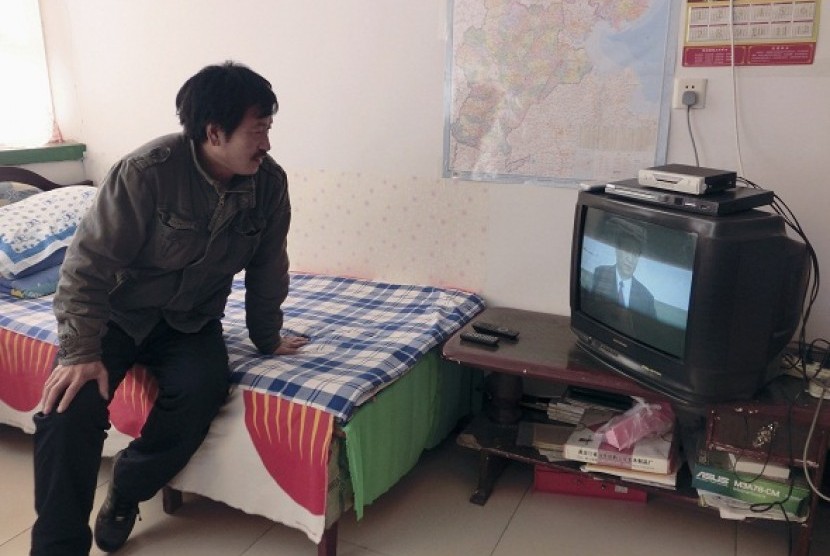REPUBLIKA.CO.ID, In a snow-covered Chinese village surrounded by mountains, farmers had little time on Thursday for the spectacle unfolding in the Great Hall of the People an hour's drive to the southeast, but in many ways a million miles away. Xi Jinping was introduced on Thursday as the new secretary of the Communist Party of China, putting him at the helm of the world's second-largest economy for the next 10 years.
"We're not really that interested," said Chen Yongjiang, a fruit and vegetable farmer in Chenjiapu, Hebei province, where more than half the 500-strong population is named Chen. "For those of us in the farmlands and the mountains, as long as they make life better for us, we're happy."
Asked how the new leadership could do that for people like him, Chen thought for a moment. "They have policies," he said.
Ma Xiuying, a 68-year-old retired farmer, was less charitable. "They only give us pensions of 55 yuan ($8.70) a month, but in Beijing they get 270 yuan," Ma said. "And we only started getting them last year."
What would she say to the new leadership? "Give all Chinese a good standard of living, that would be good."
Chenjiapu is in a valley topped on one side by a Ming Dynasty (1368-1644) section of the Great Wall. Its dwindling residents farm tiny plots, mostly corn. The handover of power to a new generation of leaders seemed a world away.
"If the country's doing well, then I guess we're okay," said a 47-year-old woman also named Ma, who wasn't following the news.
In Beijing, 30-year-old insurance claims officer Wu Lijun said he had "high expectations for them to continue to lead us in a forward direction. Ultimately, we also have faith in them."
In Shanghai, some singled out long-running issues of the economy and corruption. "I have little interest in this; the only interest I have is what policy they take on the stock market," said 25-year-old office worker Joyce Cheng.
"I hope they will start more reforms and care more about people's livelihood - pensions, employment, medical and most importantly, anti-corruption," said civil servant Li Zheng, 33 years.
There were similar voices on China's Weibo microblog site. "The standing committee has been cut by 20 percent," said one user named Will Wong, referring to the new line-up of seven leaders. "It seems like the economy is truly depressed. Everybody pray for themselves."
Another, using the handle "Power is Out", wrote: "For no reason, I've paid special attention and am expecting a lot from this standing committee - in 10 years we'll be older than 40."
In Chenjiapu, where the snow lay thick on the narrow street and courtyard roofs, Communist Party committee chief Han Ruilai acknowledged that the change in national party leaders won't make much difference for the villagers.
But he too hoped for a crackdown on corruption, which President Hu Jintao said last week threatened the party and the very state. "It's the most serious problem in China," he said. "More than in other countries."
Chen, who also runs a tiny inn for visitors to the Great Wall, was resigned to his fate, regardless of who takes the party's reins in Beijing. "Our village has no industry or factories. People need to go to the towns for part-time work," he said. "There's not much money in growing a little bit of corn."


